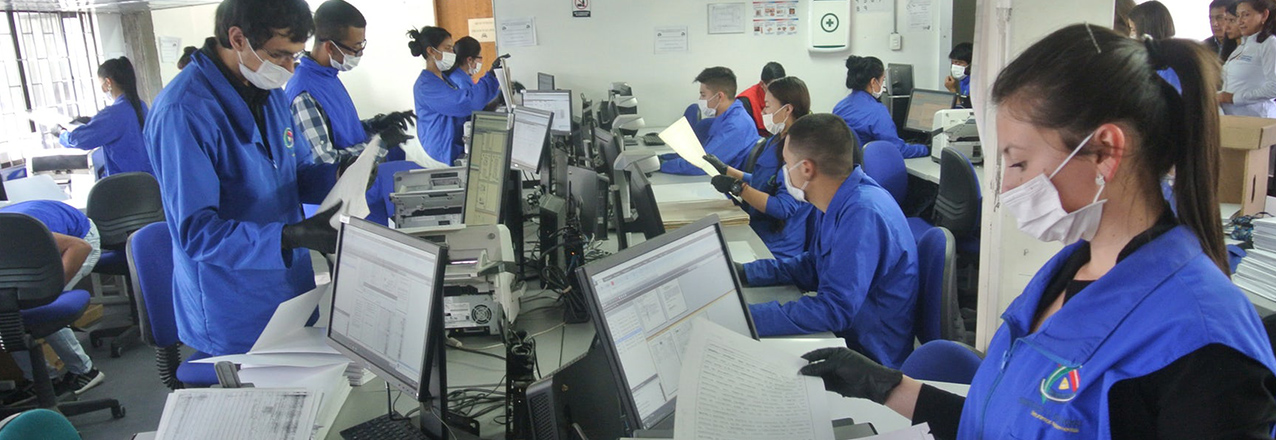Q&A with the Restitution Coordinator at the Superintendence of Notary and Registry — SNR
Originally appeared on Exposure.
NEW ELECTRONIC INFORMATION SYSTEMS AT COLOMBIA’S SUPERINTENDENCE OF NOTARY AND REGISTRY (SNR) ALLOW THE AGENCY TO MEET DEADLINES SOONER FOR THE LAND RESTITUTION PROCESS WHILE CREATING BETTER PROTECTION FOR ITS INFORMATION. IN THIS INTERVIEW, PATRICIA GARCÍA, RESTITUTION COORDINATOR AT THE SNR, EXPLORES THE ENTITY’S COLLABORATION WITH USAID.
Q: Why the focus on information systems to support land restitution in Colombia?
A: In general, the SNR has needed to modernize and become stronger in order to carry out its functions under the Victims Law. These information systems increase the security and safety of information that was previously stored only on paper. And they help deliver this information more quickly to entities working on land restitution. Stronger, faster systems also benefit the work of other entities, such as the Land Restitution Unit and the Victims Unit.
Q: How was the first system—the Landowner Search System–developed with USAID’s support?
A: As part of evidentiary material needed for restitution, the Land Restitution Unit often asks us to look up what properties a person has within Colombia’s national territory. Normally, they ask this when the person does not have the property registration number or when the judge needs information related to land formalization. USAID helped us develop an electronic system that allows us to perform this search automatically throughout our 195 local registry offices.
Q: What about the Exemptions System? What does that information system do?
A: When an entity working on restitution or formalization needs to certify that a property is unencumbered, they’re not supposed to pay for this certificate. But you need to have very precise controls in place to be able to issue the certificates for free. Normally this is done via the local public registry offices because they link the fee waiver to their daily cash flows and need to annex a justification for why the requesting entity wasn’t charged. The Exemptions System was very difficult to develop, and USAID helped us figure it out. Now this system delivers these certificates electronically and free of charge to the entities that need them.


